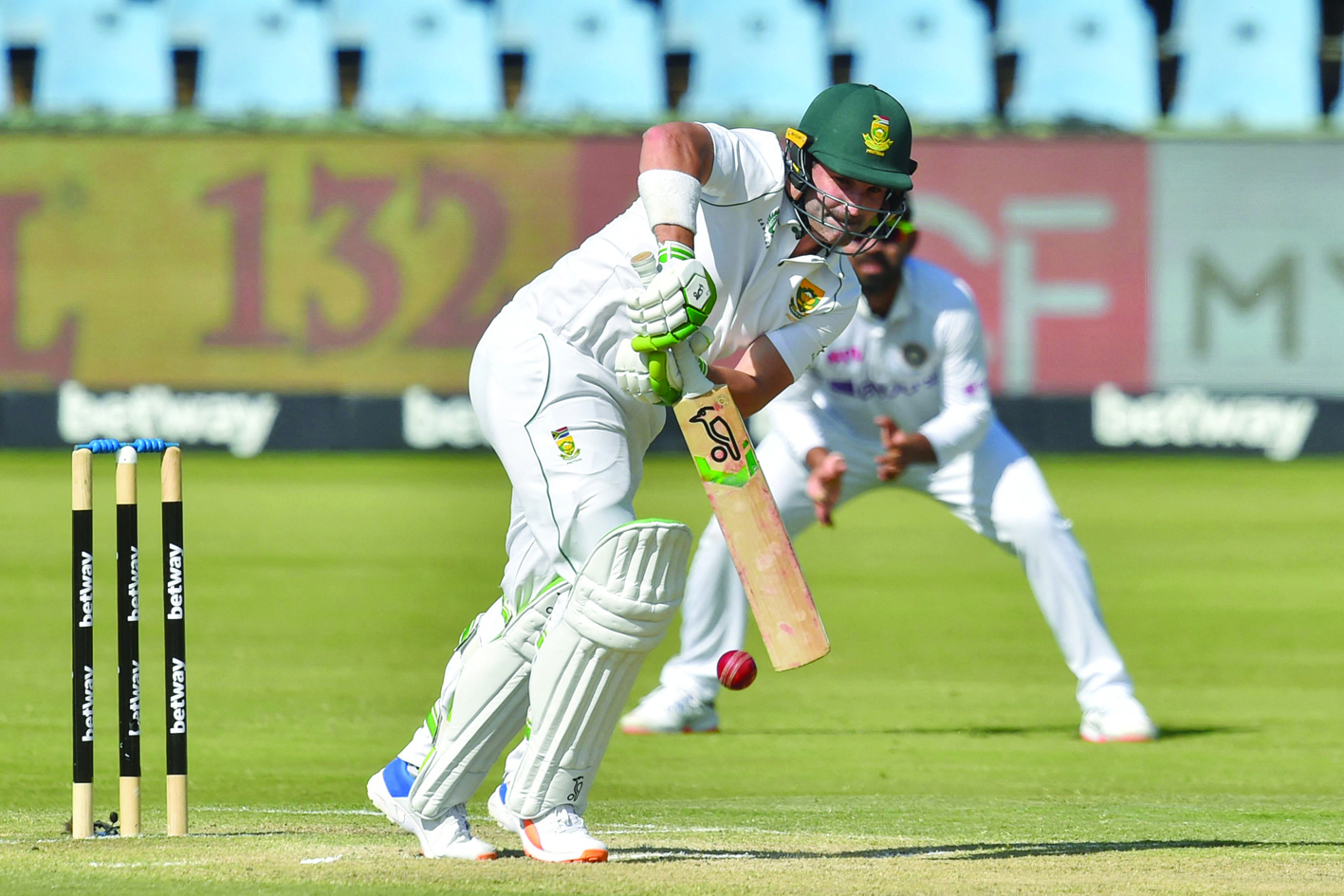 CENTURION: South Africa’s Dean Elgar plays a shot during the fourth day of the first Test cricket match between South Africa and India at SuperSport Park in Centurion yesterday. — AFP
CENTURION: South Africa’s Dean Elgar plays a shot during the fourth day of the first Test cricket match between South Africa and India at SuperSport Park in Centurion yesterday. — AFPPARIS: The French Government became the latest administration to impose limits on attendances at public events in a bid to combat the dominant Omicron variant of COVID-19 and inflicting yet more financial pain on sports. The French announced attendances would be restricted to 5,000 outdoors and 2,000 indoors for three weeks beginning next Monday.
It is a measure Pierre Venayre, director general of European Champions Cup finalists La Rochelle, described as a ‘massive blow to professional rugby’. The French follow the Scottish, Welsh and Irish administrations in deciding the restrictions are necessary as Omicron takes hold. South Africa cricket authorities also decided to hold the three Test series with India behind closed doors.
This latest restrictions follows after crowds were barred for months globally when COVID first struck in 2020. Sporting competitions globally have been taking a hit of late with increasing postponements of matches due to positive tests within clubs. The last round of France’s elite Top 14 rugby program on Sunday and Monday was decimated and the English Premier League has had 15 matches postponed over the past few weeks.
England, though, have taken no measures to reduce sizes of crowds instead insisting on either proof of vaccination or a negative test taken within the past 48 hours. Lost revenue from postponed matches can at least be recuperated at a later date when they are finally played. However, for those which take place in front of reduced crowds there is no making up their losses unless governments come up with compensation packages.
French fourth division side Vannes had been looking forward to a financial bonanza in hosting French giants Paris Saint Germain in the French Cup on Monday. Now their dreams have been shattered as their 9,600 sell-out has been reduced to 5,000 and according to their president Maxime Ray losses in revenue of 250,000 euros ($282,000). “We are missing out on what is a fortune to us,” he said.
‘Disproportionate to reality’
Whilst the French government mull over a compensation package, the Welsh administration have put one in place. Economy minister Vaughan Gething announced a £3 million ($3.97 million) spectator sports fund will be available to support those clubs affected by the loss of revenue. However, for Welsh rugby clubs that will not make up for the losses of having no spectators at all.
The Scarlets and Cardiff Blues are already licking their wounds over a loss of £250,000 (297,000 euro, $335,000) each due to their trip to South Africa where their matches were postponed owing to COVID. With both of them due to play fellow Welsh opposition on January 1 - normally a money spinner as the festive period is when they can expect packed stadia - in the United Rugby Championship they are preparing for further losses.
“The commercial impacts to all of us as clubs is catastrophic without significant further support,” said Scarlets chairman Simon Muderack. For Irish rugby too the scenario is bleak with the government having imposed capacity for outdoor venues to 50% or 5,000 people - whichever figure is lower - and will remain in place till January 30. That date falls before the beginning of the Six Nations - Ireland host Wales on February 5.
However, Philip Browne speaking in November at his final press conference before stepping down as Irish Rugby Football Union CEO made it clear what the ramifications would be if spectator numbers were reduced again. “It would tip us under and put us in difficulty again.” Should things change in England Lee Blackett, head coach of English Premiership side Wasps, thinks there is only one option. “I don’t think anyone wants three or four weeks without supporters,” he said. “If that is the case, we’ll have to look at a circuit-break.”
Blackett for the moment can rest easy but it is far from the case in Greece. The Greek Government ordered new measures to come into force on January 3 with stadia permitted to have 10 percent of full capacity for at least a fortnight. Greek football clubs could barely disguise their fury with the Super League voting unanimously against the plans on Tuesday. “The Super League estimates that the 10 percent limit is tantamount to absolute closure of the stadiums,” they said in a statement. “It is disproportionate to reality.” — AFP










